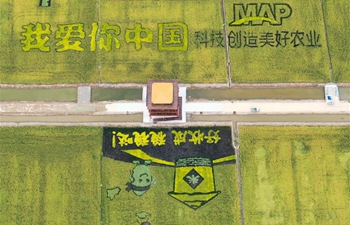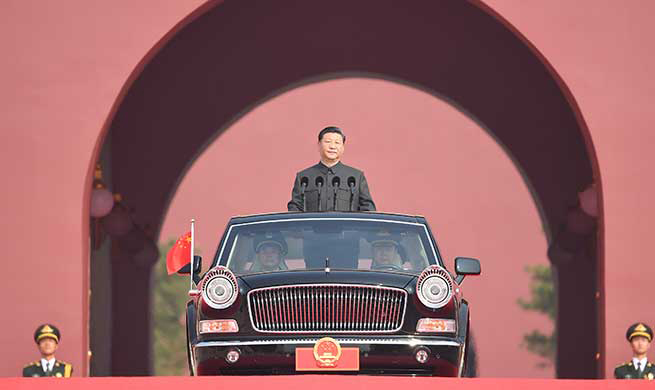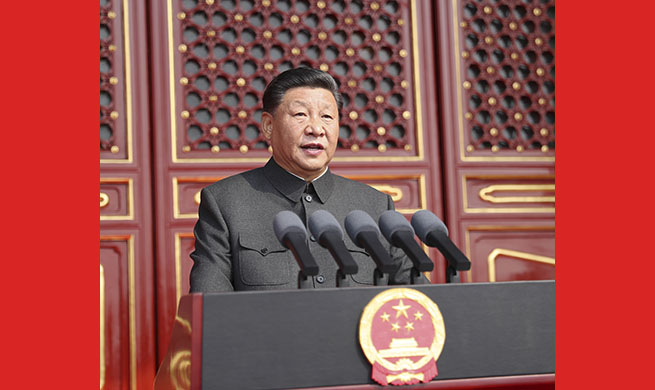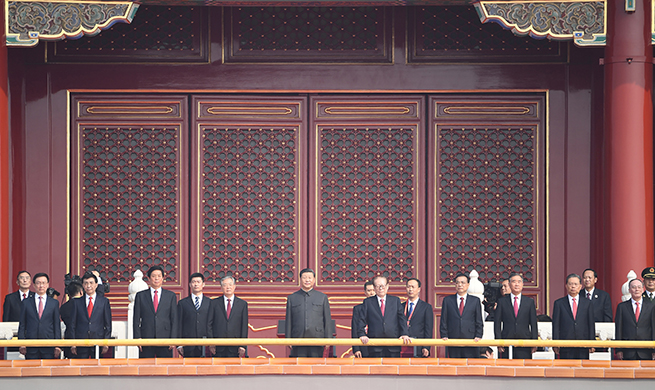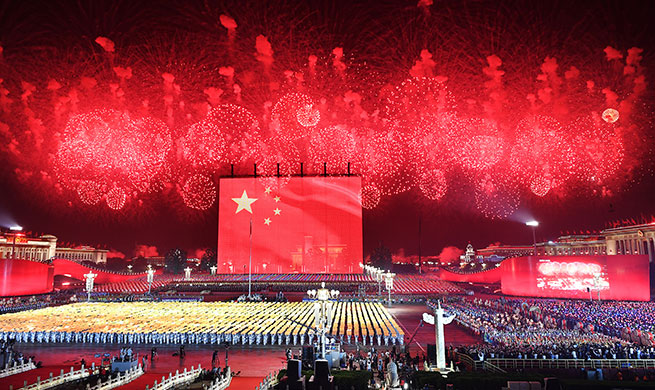NEW YORK, Oct. 2 (Xinhua) -- The China-proposed Belt and Road Initiative (BRI) is "one of the seminal events in recent history" and the West needs to have a good grasp of it, said a U.S. scholar.
"It's a remarkable project for all the countries," Sarwar Kashmeri, an adjunct professor of political science at Norwich University, told Xinhua in a recent interview.
Having spent years researching and writing about the BRI, he found that "what has been written about the Belt and Road Initiative (in the West) is, firstly, not very accurate."
"Secondly, (it) is usually in language that is meant for experts so that policymakers and ordinary citizens are not understanding it as much as they should," he said.
"And finally, the media, if I may say so, has not done an adequate job of explaining the enormous first-in-history project as it is," added Kashmeri, also a fellow of the Foreign Policy Association, a non-profit organization.
He pointed out that the BRI has long been "wrongly perceived" in the United States "as the manifestation of Chinese neocolonialism."
"I don't see any evidence of it," he said. "Colonialism is a very charged word. I don't see China saying we are going to do the BRI because there will be a China Empire with 100 countries."
"And I do not believe in the 21st century that is possible. The world is very different," he added. "So, I simply don't believe that."
Urging people to think about the BRI "on their own," Kashmeri said he sees it as "a visionary statement" and "what China's trying to do has never been done in history before."
The BRI also reflects China's growing confidence in its future and its role of global leadership, Kashmeri said. "It's a natural evolution, in my opinion, of where China is going to be in the 21st century."
In his eyes, the BRI means "You get rich, We get rich." "When countries get rich, they like to connect themselves, set up alliances. But I think the alliances that will come out of the BRI will be more twenty-first-century alliances, not based on military thinking," he said.
Since it was put forward in 2013, more than 160 countries and international organizations have signed BRI cooperation agreements with China.
The reason why the BRI has succeeded in attracting most of the international community in less than six years, according to the professor, lies in the "China economic miracle."
"I think the countries are attracted to it because they really do believe that they will get rich as China gets rich, and their friendship with China will develop, the standard of living will develop," he said.
"And I often like to point out that we should not forget that in the last two or three decades, China has raised 700 million people of their citizens out of poverty to lower middle class," he added.
For those underdeveloped countries, it is the right choice to start building their economies from infrastructure construction, he said. "Infrastructure leads to development, leads to higher standards of living."
Although the BRI is "only in its earlier stages," it is already "a reality," said Kashmeri, noting that many Western countries and private investors have participated in financing BRI projects, especially through the Asian Infrastructure Investment Bank (AIIB).
"I believe that it will be the most consequential change in two decades or so that we have seen" in the realm of global economic governance, he said of the AIIB.
Noting that China is faced with challenges in the management of complex and multilateral BRI projects involving different countries with different cultural, economic and political systems, Kashmeri stressed that like any vision, the BRI is "a goal to be achieved" and the path to achieve it can "evolve through time."
He added that China and the United States have to find ways for closer cooperation within the BRI framework. "I believe it's important for China to think about how it is going to work with America. And America also has to understand how to work with China," he said.


